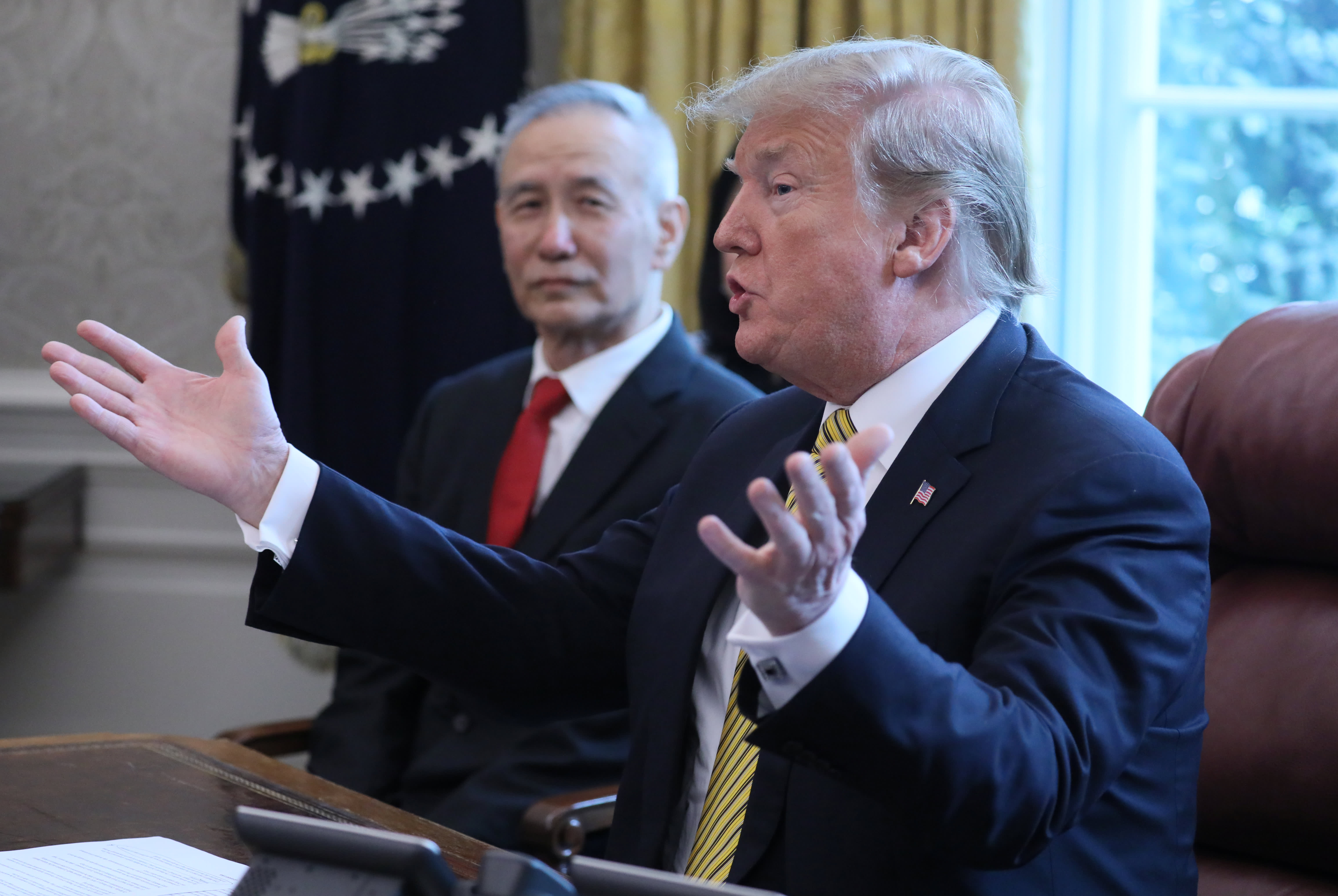Chinese Vice Premier Liu He is expected to join a delegation in the United States this week, a potentially positive sign for a trade agreement between the U.S. and China even as the Trump administration says it will hike tariffs on Chinese goods.
The tariff increase will go into effect at 12:01 a.m. on Friday, U.S. Trade Representative Robert Lighthizer told reporters on Monday. But the U.S. would reconsider the duties if talks get back on track, Treasury Secretary Steven Mnuchin also said.
Liu's presence could be telling: market watchers considered it more likely that the U.S. would hike tariffs on $200 billion in Chinese goods to 25% from 10% if he did not attend the talks. Still, some new roadblocks have emerged ahead of the next round of negotiations.
U.S. officials on Monday accused China of reneging on commitments made as part of the negotiations. Lighthizer described an "erosion of commitments" on the part of the Chinese.
The Chinese team is set to come to Washington on Thursday and Friday, according to Lighthizer. Talks continue, and the two sides are not cutting off discussions after President Donald Trump threatened to increase tariffs already placed on Chinese products and add new duties, the trade official said. China's Commerce Ministry confirmed Tuesday that Liu will visit the U.S. on May 9 and May 10, according to Reuters.
U.S. stocks did not move drastically in extended-hours trading following the remarks from Lighthizer and Mnuchin. The SPDR S&P 500 ETF Trust, which tracks the S&P 500 index, was down about 0.5% in extended trade.
The comments from top U.S. trade officials follow a choppy day in both Asian and U.S. stock markets sparked by Trump's tweeted tariff threat. Stocks initially fell Monday after Trump first announced the tariff increase in a tweet Sunday.
While U.S. equities initially plunged Monday, they recovered throughout the day as investors surmised that the president may not have upended the talks. CNBC previously reported that a Chinese team would still come to the U.S. this week for talks, although it may be smaller than originally planned.
U.S. officials said they saw a shift in tone in the talks over the weekend. Mnuchin said China wanted to go back on clear commitments that had the potential to change the deal significantly.
Lighthizer and Mnuchin did not comment on the separate tariffs on $325 billion in Chinese products that Trump threatened in a tweet Sunday.
— CNBC's Stephanie Dhue contributed to this report


